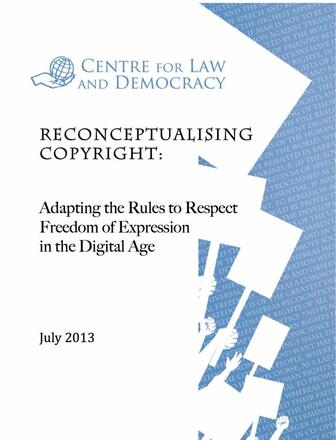
This report examines the current framework of copyright rules from a freedom of expression perspective, in order to determine how copyright should be reformed to best achieve its underlying purpose of promoting and protecting expression.
Part I begins by providing an overview of the systems for protection of copyright and freedom of expression, and goes on to spell out the problems with the current system of copyright rules, which underlie the need for a reconceptualisation of those rules.
Part II begins by illustrating the difficulty of analysing copyright using the traditional three-part test, and proposing a modified test for analysing copyright restrictions.
This Report comprehensively demonstrates the need for major reform of the rules relating to copyright, internationally and in every country. The recommendations in this Report are radically different from the major reforms that have been proposed in recent laws and treaties. This is largely because the most prominent proposals have been heavily influenced by major lobbying groups, most of whom are funded by content-producing industries with a vested interest in strengthening copyright protection. The conclusions of this report are based on promoting respect for freedom of expression.
Tags: Freedom of expression Copyright Digital rights WorldwideThe content of this article can be used according to the terms of Creative Commons: Attribution-NonCommercial 4.0 International (CC BY-NC 4.0) . To do so use the the wording "this article was originally published on the Resource Centre on Media Freedom in Europe" including a direct active link to the original article page.

